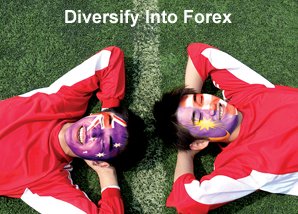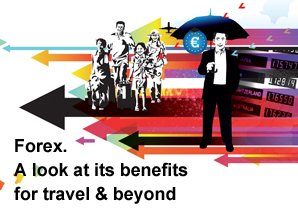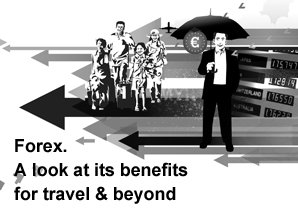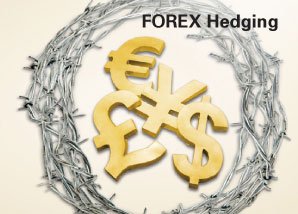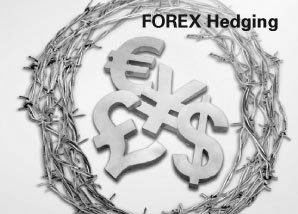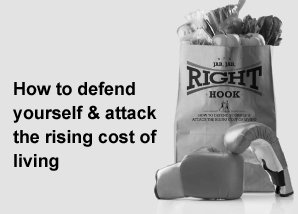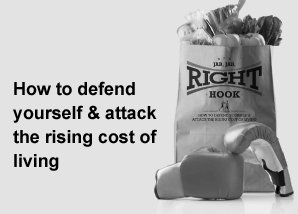Forex for your future
When it comes to investments today, there is a wide range of options for you to choose from. Depending on your goals and investment objectives, your appetite for risk and other factors, your choice of investments could range from stocks to properties to mutual funds to bonds and more.
Foreign currency or foreign exchange (Forex or FX) has started to gain popularity as a new option for investors. But what exactly is foreign exchange investment and trading, and how does it work?
In simple terms, forex trading is the buying and selling of foreign currencies to try to make a profit.1 Forex is actually the biggest financial market in the world with some US$5.3 trillion traded every day in year 2014.2 According to Wall Street Journal article dated 2011, while it has been the domain of the big banks, corporations and private investment funds, forex trading is popular amongst retail investors globally thanks to the rise in online forex trading platforms.3
While forex is still not as popular as other asset classes in Malaysia like equities or properties, it has been gaining momentum after the de-pegging of the Ringgit post the Asian Financial Crisis.4 The rising affluence of Malaysians and the Ringgit’s volatility over the past year has also driven people to look into ways to hedge the Ringgit against foreign currencies.5
Often, adding forex to your investment portfolio could be useful if you have a need for foreign currencies. For example, if your business trades with foreign partners, or you are planning to fund your children’s education overseas, or you are paying off the mortgage of a foreign property, or you have overseas travel plans, then investing in forex may be useful.
The forex investment instruments offered in Malaysia by various local and foreign banks includes foreign currency accounts, dual currency investments, foreign currency denominated bond papers, Unit Trust Funds or Structured Investment.
How can I invest in the Forex market?6
There are a variety of options for investors to invest in the foreign exchange market. Here are some of them…
-
The Forex market
It is a 24-hour cash market where currency pairs, like the Euro/US dollar pair, are traded. Investors are expecting that one currency will go up and the other will go down. The currencies are bought and sold according to the current price or exchange rate.
-
Foreign currency futures
These are futures contracts on currencies, which are bought and sold based on a standard size and settlement date. The holders of a currency futures is obligated to buy or sell the agreed upon amount of foreign currency regardless of whether they make a gain or loss.
-
Foreign currency options
Foreign currency options give the option holder the right, but not the obligation, to buy or sell a fixed amount of a foreign currency at a specified price on or before a specified date in the future.
FOREIGN DENOMINATED INVESTMENT
-
Exchange-traded funds
An open-ended investment fund listed and traded on a stock exchange such as Bursa Malaysia. An ETF is comprised of various individual securities, allowing investors to invest in many individual companies in one transaction. Some ETFs are single-currency while others may consist of a group of currencies.
-
Certificates of Deposit
Similar to fixed deposits, foreign currency CDs have a fixed placement date and a specified interest rate. CDs are available in a single currency or a basket of multiple currencies.
-
Foreign Bond Funds
These are mutual funds that invest in the bonds of foreign governments. Foreign bonds are typically denominated in the currency of the country of sale. If the value of the foreign currency rises relative to the investor’s local currency, the earned interest will increase when it is converted.
-
Foreign Currency Unit Trust Fund
Unit Trusts are a form of collective investment that allows investors with similar investment objectives to pool their funds to be invested in a portfolio of securities or other assets. Generally, foreign currency unit trust funds are foreign currency denominated funds invested primarily in overseas markets.
HSBC’s Forex Solutions
Whether you would like to diversify your investment portfolio, or are planning to fund your children’s overseas education, or whatever your forex needs may be, HSBC may have a forex solution that may fit your needs.
Forex for Investments
- Manage foreign currencies more efficiently with HSBC’s Foreign Currency Account in various currencies.
- Gain potentially higher returns with foreign currency denominated investment products.
- Take advantage of currency exchange rate fluctuations to potentially enhance your yield and accumulate foreign currencies to meet your future needs with Dual
Currency Investment.
- Benefit from the growing international presence of the Renminbi (RMB) through our full range of RMB denominated investment products ranging from Time Deposits to Bonds to meet your risk appetite and needs.
Forex for Savings
- Save for future needs with Foreign Currency Savings Account and Time Deposits in 12 foreign currencies, including RMB. You can also accumulate foreign currencies with dual currency investment.
- Enjoy potentially lower exchange rate with dollar cost averaging by transferring funds via HSBC Personal Internet Banking or automatically and regularly through standing instructions from your local currency account to your Foreign Currency Account, including RMB denominated Foreign Currency Account (or vice versa).
If you are interested in adding forex to your investment portfolio or would like to learn more about how you can take advantage of HSBC’s forex solutions to meet your foreign currency needs, speak to us today.
1 ASIC’s MoneySmart, Foreign exchange trading, undated.
2 Reuters.com, Daily FX volumes hold above $5 trillion in Feb-CLS, March 12, 2014.
3 The Wall Street Journal, Is currency trading worth the risk?, July 9, 2011.
4 The Star Online, Risk or opportunity?, May 27, 2012.
5 The Star Online, Five ways to hedge against ringgit volatility, May 2, 2015.
6 iMoney.com, Investing in forex, March 3, 2014.
7 Forbes.com, Eight reasons to consider currency trading, August 24, 2006.


 LIKE THIS ARTICLE?
LIKE THIS ARTICLE?




